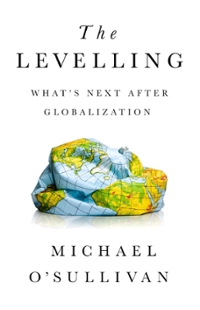Answered step by step
Verified Expert Solution
Question
1 Approved Answer
How does Locke define political power? Why does he claim one can't appeal to God or being a descendent of Adam as justification for special
- How does Locke define political power? Why does he claim one can't appeal to God or being a descendent of Adam as justification for special treatment and rights?
- Describe Locke's view of the state of nature. How are things run? In what sense is everyone equal according to Locke? What are the laws of nature? What does he say about seeking reparations for wrongs?
- Why does Locke say that an individual never has the right to sell oneself to another? Who does he claim humans belong to, most fundamentally?
- Locke states: "The state of nature has a law of nature to govern it, which obliges every one: And reason, which is that law, teaches all mankind, who will but consult it, that being all equal and independent, no one ought to harm another in his life, health, liberty, or possessions" (366). Explain how Locke's view of the state of nature is different from Hobbes' view of the state of nature.
- Why is it so important to Locke that an individual join the commonwealth voluntarily? What rights does the individual give up in joining a common wealth?
- Explain Locke's view of the state of war. How does one come into being in a state of war with others? How does the commonwealth come into a state of war with citizens?
- How does one come to own something (land, food, etc.) according to Locke? Why does he think this? What qualification (in relation to quantity taken) does he offer in terms of ownership? Explain this quote: "I think it will be but a very modest computation to say, that of the products of the earth useful to the life of man, nine tenths are the effects of labour. . ."(373).
- In what sense did the invention of money make the accumulation of wealth possible? Prior to the creation of money and a marketplace, why wasn't it in the individual's interest to produce more than she could use herself (and her family)?
- What does Locke see as the chief end of civil society? Why does he think this?
- According to Locke, why would people give up the state of nature? What is better about a civil society than the state of nature?
- Why does Locke claim that it's preferable to be in the state of nature than to be under an absolute monarch?
- Who makes decisions according to Locke in the body politic? Who does the individual hand over his executive powers to when joining a civil society? What are the difficulties faced in running the state this way?
- What qualifies one as being a member of the commonwealth? Are foreigners considered members? Why or why not?
- What three things does Locke claim are lacking in the state of nature and give good reasons for joining a civil society?
Step by Step Solution
There are 3 Steps involved in it
Step: 1

Get Instant Access to Expert-Tailored Solutions
See step-by-step solutions with expert insights and AI powered tools for academic success
Step: 2

Step: 3

Ace Your Homework with AI
Get the answers you need in no time with our AI-driven, step-by-step assistance
Get Started


